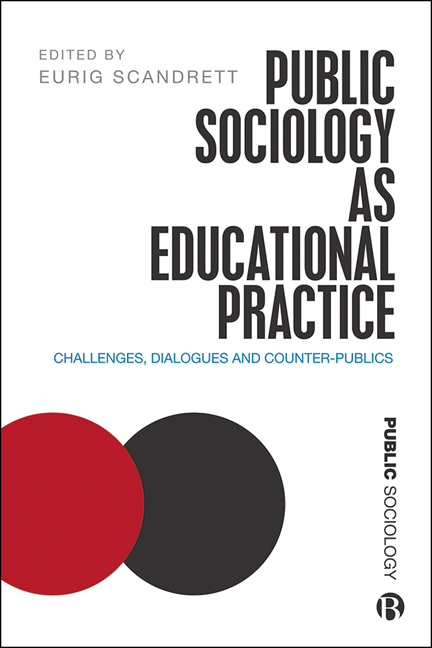III.4 - Community Engagement: Cultivating Critical Awareness
Published online by Cambridge University Press: 02 March 2021
Summary
Introduction: theorising practice
We are writing as teachers and academics with substantial experience over many years (50 years combined) on undergraduate and postgraduate programmes of professional community education. This chapter is derived from that experience and developed from Community Engagement: A Critical Guide for Practitioners (Shaw and Crowther, 2017), a practical resource intended to guide workers as they confront the contemporary challenges of community engagement.
The formation of professional community education services in Scotland was an outcome of the 1975 Alexander Report on Adult Education: The Challenge of Change (Scottish Education Department, 1975), which was adopted by most local authorities. It was not until early 2000 that the term went largely out of favour in the context of local government reform. Whilst the term ‘community education’ has been largely abandoned in policy in Scotland, and other parts of the UK, it still carries historical resonance as a form of educational work rooted in the lives of real people, whatever the contingencies of context. It therefore continues to raise expectations of a curriculum that draws creatively on people's experiences in order to enlarge the space for cultivating and sustaining critical community engagement.
These aspirations, however, are increasingly subject to competing rationalities. First, they are at odds with the realities of contemporary higher education in the UK. We are based in a research-intensive university, operating within a wider system of marketised higher education. In this context, the professional locus of our work, and the ideological commitments that inform it, tend to be marginal at best; at worst, surplus to institutional requirements. In addition, changing terms and conditions of employment – towards casualisation and competitiveness – do not engender confidence in the future of such programmes. On the other hand, legislative arrangements that have embedded ‘community engagement’ in much public policy (see Scottish Government, 2015 Institute for Government, 2015) continue to sustain a ‘market’ for these kinds of programmes, whilst policy commitments to ‘widening access’ and ‘lifelong learning’ continue to receive at least rhetorical support within the university sector.
Universities have always been contradictory places, harbouring critical knowledges as well as commodified ones and, whilst the space of the former is constantly under threat, it has not yet been entirely eliminated.
- Type
- Chapter
- Information
- Public Sociology as Educational PracticeChallenges, Dialogues and Counter-Publics, pp. 287 - 298Publisher: Bristol University PressPrint publication year: 2020



